Navigating the New Year: A Comprehensive Guide to January 2025 Holidays and Festivals
Navigating the New Year: A Comprehensive Guide to January 2025 Holidays and Festivals
Introduction
With great pleasure, we will explore the intriguing topic related to Navigating the New Year: A Comprehensive Guide to January 2025 Holidays and Festivals. Let’s weave interesting information and offer fresh perspectives to the readers.
Table of Content
Navigating the New Year: A Comprehensive Guide to January 2025 Holidays and Festivals
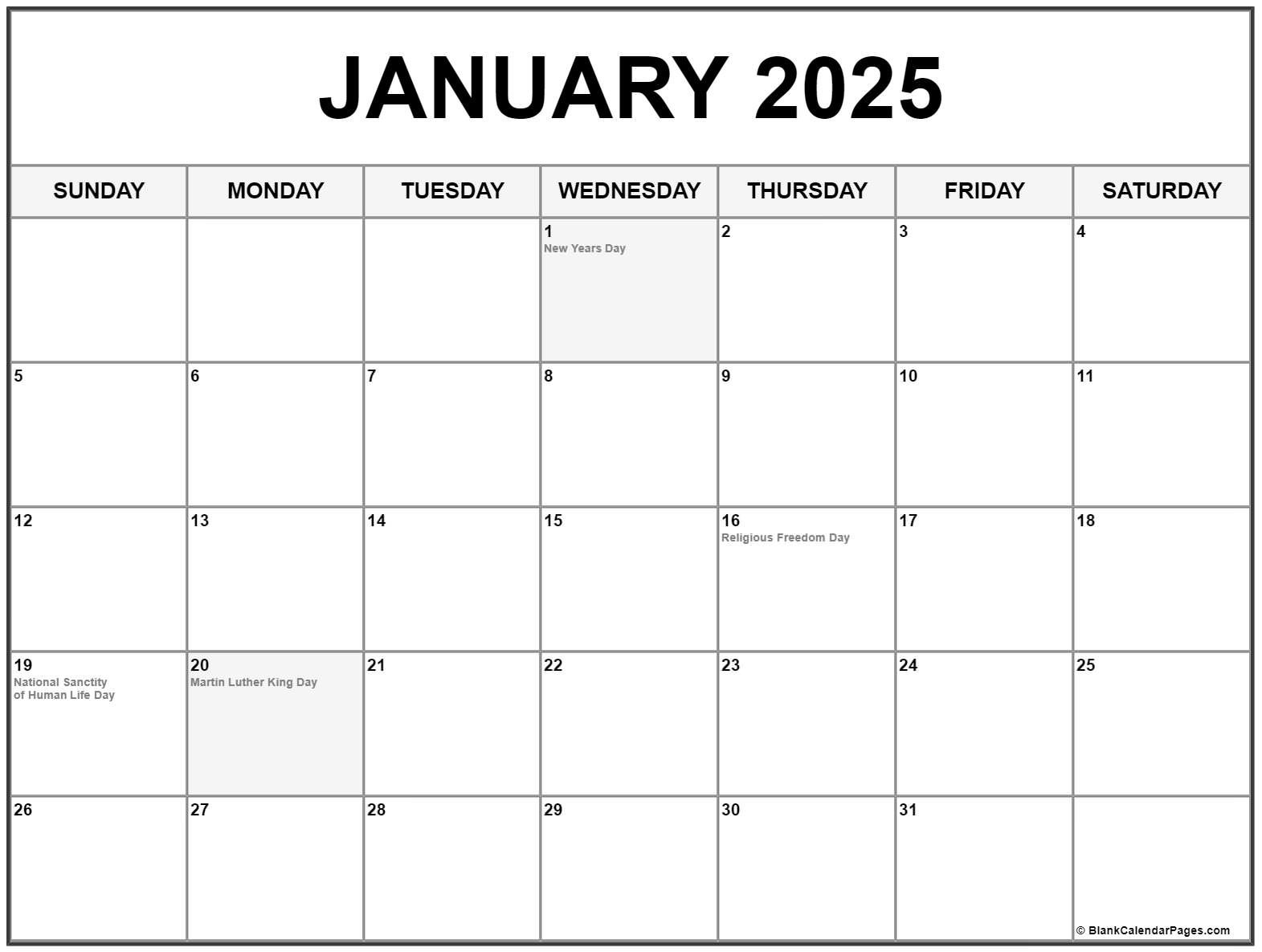
As the first month of the year, January 2025 holds a unique significance, ushering in new beginnings and offering a fresh perspective on the year ahead. This month is a tapestry of cultural celebrations, religious observances, and national holidays, each offering a distinct flavor and enriching the tapestry of human experience. This comprehensive guide provides an in-depth exploration of key events in January 2025, offering insights into their cultural and historical significance.
Navigating the Calendar: Key Dates and Their Significance
1. New Year’s Day (Wednesday, January 1st)
The first day of the year, New Year’s Day, is a global celebration marking the beginning of a fresh start. It is a time for reflection, setting resolutions, and expressing hopes for the year ahead. In many cultures, this day is marked by special meals, fireworks displays, and social gatherings.
2. World Braille Day (Sunday, January 4th)
Observed on the birth anniversary of Louis Braille, this day honors the invention of Braille, a tactile reading and writing system for blind and visually impaired individuals. It serves as a reminder of the importance of accessibility and inclusion for all.
3. Epiphany (Thursday, January 6th)
This Christian holiday commemorates the visit of the Three Wise Men to the infant Jesus. It marks the end of the Christmas season and is celebrated with special church services, processions, and festive meals in many countries.
4. Orthodox Christmas (Friday, January 7th)
For those observing the Julian calendar, Christmas falls on January 7th. This day is celebrated with elaborate church services, festive meals, and family gatherings, embodying the spirit of joy and togetherness associated with the holiday.
5. World Day of Prayer for Peace (Friday, January 10th)
Dedicated to promoting peace and reconciliation, this day encourages individuals and communities to engage in prayer, reflection, and actions that contribute to a more peaceful world.
6. Martin Luther King Jr. Day (Monday, January 20th)
A federal holiday in the United States, this day honors the life and legacy of Martin Luther King Jr., a prominent civil rights leader. It is a day for reflection on the fight for racial equality and justice, and for celebrating the progress made towards a more inclusive society.
7. International Day of Commemoration in Memory of the Victims of the Holocaust (Wednesday, January 27th)
This day serves as a reminder of the horrors of the Holocaust, a period of genocide during World War II. It is a day for reflection, remembrance, and education, urging us to learn from the past and prevent future atrocities.
8. International Customs Day (Saturday, January 26th)
This day recognizes the role of customs administrations in facilitating international trade and protecting national security. It is a day to celebrate the work of customs officials and to raise awareness about the importance of their contributions.
Beyond the Calendar: Festivals and Events
Beyond these key dates, January 2025 is also home to numerous festivals and events around the world, each reflecting the unique cultural heritage and traditions of their respective regions.
1. The Chinese New Year (Thursday, January 24th)
A significant cultural event, the Chinese New Year, or Lunar New Year, is celebrated with elaborate festivities, including lion dances, fireworks displays, and family gatherings. The year 2025 is the year of the Dragon, symbolizing strength, power, and good fortune.
2. Pongal (Tuesday, January 14th)
This four-day harvest festival in South India celebrates the bounty of the harvest and expresses gratitude to the sun god Surya. It is marked by vibrant decorations, traditional meals, and joyous celebrations.
3. Lohri (Wednesday, January 15th)
A popular harvest festival in Punjab, India, Lohri celebrates the winter solstice and the arrival of longer days. It is marked by bonfires, traditional songs and dances, and the sharing of sweets and nuts.
4. Makar Sankranti (Wednesday, January 15th)
This Hindu festival marks the transition of the sun into the zodiac sign of Capricorn, signifying the end of winter and the beginning of longer days. It is celebrated with kite flying, special meals, and religious ceremonies.
5. Thai New Year (Wednesday, April 13th)
This festival, also known as Songkran, is celebrated with water splashing, temple visits, and family gatherings. It marks the traditional Thai New Year and is a time for renewal and purification.
Understanding the Importance of These Events
These holidays and festivals offer a rich tapestry of cultural and historical significance. They provide opportunities for:
- Celebrating Cultural Heritage: These events serve as a platform to celebrate and preserve diverse cultural traditions, promoting understanding and appreciation of different customs and values.
- Strengthening Community Bonds: Many holidays and festivals are centered around family and community gatherings, fostering a sense of belonging and strengthening social ties.
- Reflecting on Values: Some holidays, like Martin Luther King Jr. Day or International Day of Commemoration in Memory of the Victims of the Holocaust, offer opportunities for reflection on important societal issues and the pursuit of a more just and equitable world.
- Promoting Tourism: These events often attract tourists from around the world, contributing to local economies and fostering cultural exchange.
FAQs: Addressing Common Queries
Q: What are the most significant holidays in January 2025?
A: New Year’s Day, Epiphany, Orthodox Christmas, Martin Luther King Jr. Day, and International Day of Commemoration in Memory of the Victims of the Holocaust are among the most significant holidays in January 2025.
Q: How are these holidays observed around the world?
A: Observances vary depending on cultural and religious traditions. Some common practices include special meals, religious services, parades, and family gatherings.
Q: What are the cultural and historical significances of these holidays?
A: Each holiday holds unique cultural and historical significance, reflecting the values, beliefs, and historical experiences of different communities.
Q: How can I learn more about these holidays and festivals?
A: You can explore online resources, libraries, and cultural institutions for information about specific holidays and festivals.
Tips for Engaging with These Events
- Research and Learn: Take the time to learn about the history, traditions, and significance of different holidays and festivals.
- Attend Events: Participate in local celebrations and events to experience the unique traditions and cultural expressions firsthand.
- Respect Cultural Practices: Be mindful of cultural sensitivities and traditions when participating in celebrations.
- Share Knowledge: Educate others about different holidays and festivals, promoting understanding and appreciation of cultural diversity.
Conclusion: Embracing the Richness of January 2025
January 2025 offers a diverse and enriching calendar filled with holidays and festivals. By understanding their significance and engaging with them respectfully, we can foster cultural understanding, strengthen community bonds, and appreciate the beauty of human diversity. As we navigate the new year, let us embrace the opportunity to learn, celebrate, and connect with the world around us.
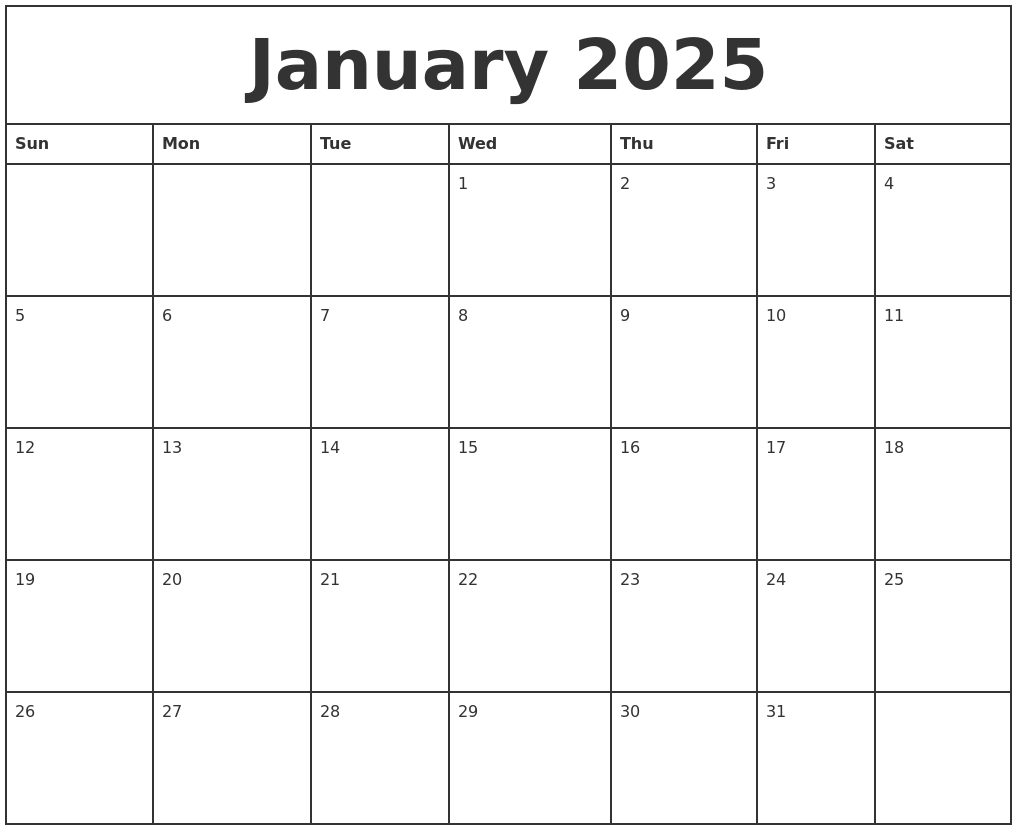
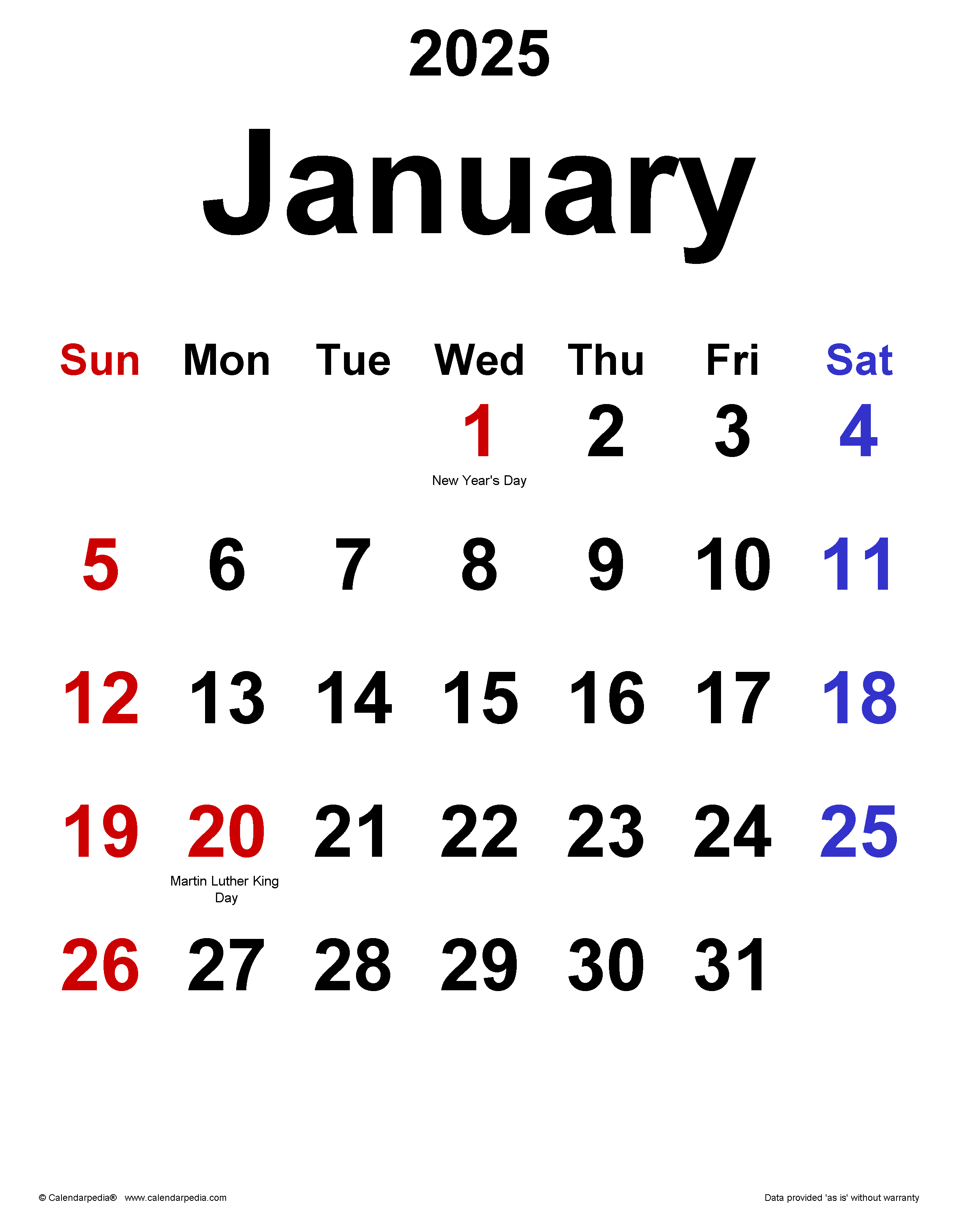
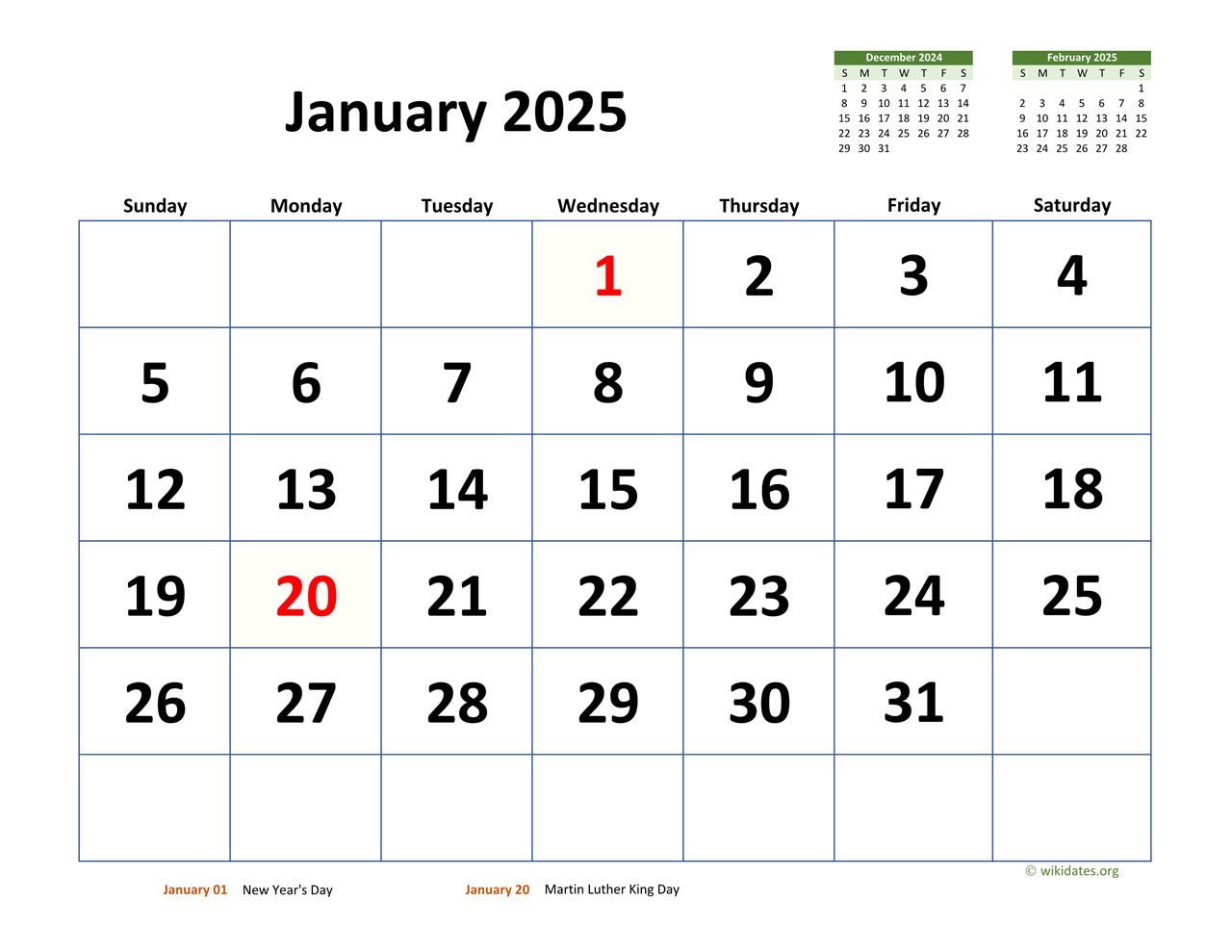


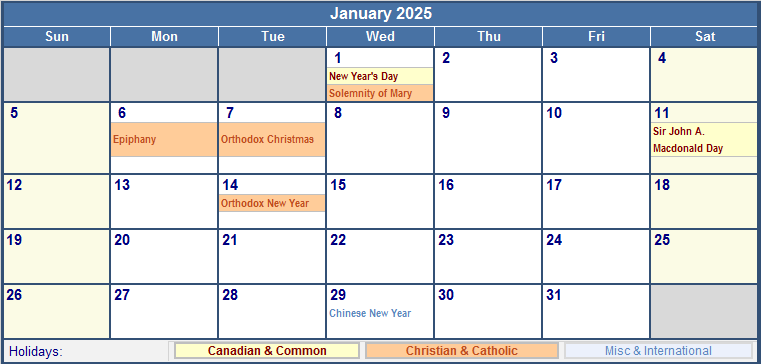


Closure
Thus, we hope this article has provided valuable insights into Navigating the New Year: A Comprehensive Guide to January 2025 Holidays and Festivals. We thank you for taking the time to read this article. See you in our next article!